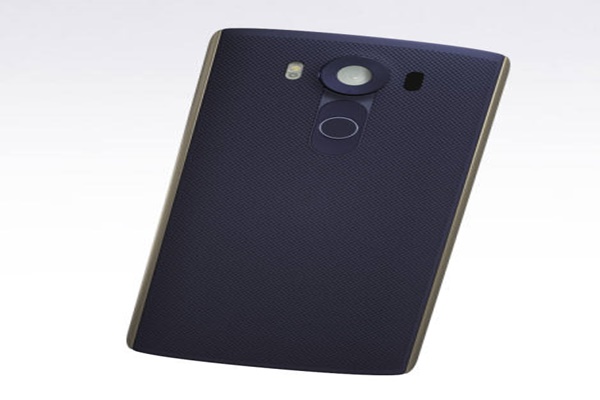Fingerprint Recognition Modules Is Becoming Smartphone’s Basic Specs
LG Electronics, who has been clinging onto using its own security function ‘Knock Code’, installed fingerprint recognition module onto back of its Super Premium Phone ‘V10’ that was introduced on the 1st. Although it was attempting to distinguish itself with Knock Code from an aspect of users’ experiences, it can be seen that it was hard to go against general trend when changes such as speed of fingerprint recognition sensor, improvement of recognition accuracy, expansion of mobile payment and others in markets are happening at a rapid rate.
Fingerprint recognition modules were applied in major Smartphone manufacturers such as Samsung Electronics, Apple and others and most of Smartphone product lines from Chinese businesses including Huawei, Sony, and LG Electronics. Not only is it used to strengthen security of some premium products, but it is practically settled as basic spec of Smartphones along with camera modules.
Fingerprint recognition modules that were applied in the back of V10 are ‘FPC 1035’ sensors that were released this year by FPC (Fingerprint Cards AB) business in Sweden that specializes in fingerprint recognition sensors. It can read fingerprint patterns when a person puts finger from any direction and its response speed is also very fast. It is estimated that Crucialtec, which is a business in South Korea that specializes in parts, will be in charge of packing modules and supplying them.
In Google’s 2 new Reference Smartphone Nexus models that were introduced earlier, FPC 1025 sensor-based fingerprint module is installed on the back. These are ‘Nexus 6P’ that is produced by Huawei and ‘Nexus 5X’ that is produced by LG Electronics.

Google installed Android operation system (OS) 6.0 ‘Marshmallow’, which provides fingerprint recognition solution as one of basic specs, for the first time into these two products. They also support ‘Android Pay’, which is a Google’s mobile payment solution based on fingerprint recognition.
Markets are expecting that fingerprint modules will be applied in most of Smartphones that will be released hereafter because modules can be applied easier than before starting from Android Marshmallow since separate framework process, which has each manufacturer connect modules to OS, was needed in the past due to nonexistence of functions that support fingerprint recognition in OS.
It also seems that unit price of fingerprint recognition modules, which used to be more expensive than other parts, will slowly go down.

It is predicted that competition for lower price will go on full-scale as many IC businesses including Taiwan are entering fingerprint recognition sensor market that used to be led by Synaptics, AuthenTec, and FPC. As sensors take up a lot of modules’ unit prices, it is expected that range of choice by each manufacturer will expand since there will be many fingerprint recognition sensors with wide range of cost according to inexpensive Smartphones.
As LG Electronics emerged as a new market related to fingerprint recognition, it seems that rear market, which were formed according to Samsung Electronics, Apple, and Chinese businesses’ needs, will become more active. This is so because expansion of variety of customers’ supplies is expected since Samsung Electronics internalizes module packaging and Apple has its own supply network.
Other than Crucialtec that already has many Chinese businesses such as Huawei, Oppo, Meizu, and others as its customers, industry is predicting that many other parts businesses that had been preparing fingerprint recognition modules as their new businesses will also enter the market one after the other.
“Crucialtec is responding to expansion of supplies of fingerprint recognition modules in second half by increasing its manpower, utilizing Samwooems’ facilities, and others. As LG Electronics is turning towards fingerprint recognition and as fingerprint recognition modules become basic specs of Smartphones, there will be many opportunities of variety of new businesses even in material and parts industries.” said one person in the industry.
Staff Reporter Park, Jungeun | jepark@etnews.com